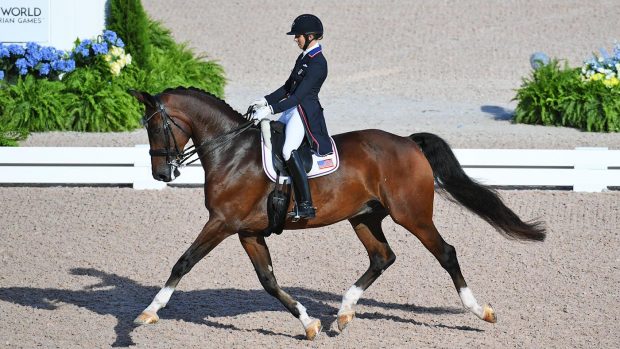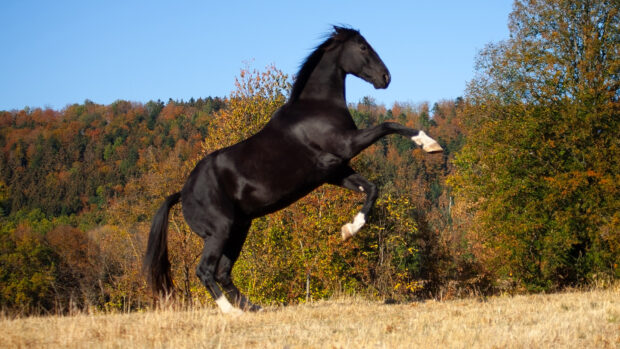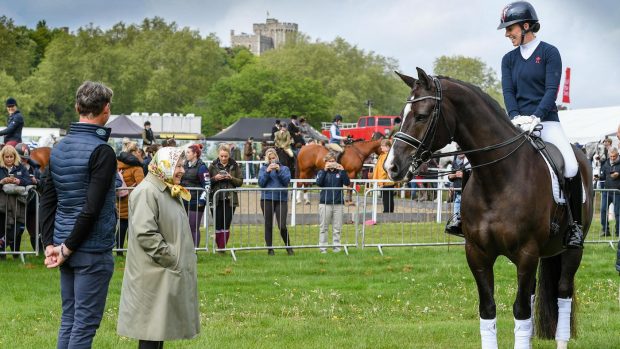Riders’ negative opinions of their own body shape is a significant issue, a prizewinning study has indicated — while many people believe a larger physical size has a detrimental effect on competition judging.
Sofia Forino, a student of BSC equestrian performance management at University Centre Sparsholt (UCS), won the undergraduate prize at the 2021 virtual Equine Science Symposium (1-4 June) for her abstract An investigation into self-perception of body image in female equestrians in the United Kingdom.
Sofia’s research, which is part of her dissertation, is being conducted with British Horse Foundation (BHF) lecturer bursary funding, and was written with UCS lecturers Lorna Cameron, Natalie Stones and Marianne Freeman. The aim was to look at self-perception of body image and the potential impact on wellbeing and performance in the equine industry, something that is being investigated at UCS as part of the BHF lecturer bursary.
Sofia told H&H her research involved a questionnaire, to which she had 493 responses from competitive and non-competitive riders.
Participants were asked which of 10 body images, scaled from small to large, they felt was the most ideal shape for a rider.
Nearly half, 46%, chose the second-thinnest image, 25% the thinnest and 26% the third-smallest frame, so only 3% felt any bigger was the ideal shape.
“There was almost no impact on the answer from [the respondent’s] age, whether they were competitive or not, or what sort of riding they did,” Sofia said. “I’d expected people in different areas maybe to say different things; maybe people who just hacked or rode once a month to say you can be a bit bigger than someone competing but there was no difference at all, it was really surprising.”
Respondents were also asked to rate their own body shape, and a significant number put themselves larger than the frame they thought was ideal. Those who rated themselves two sizes or more above their ideal were seen as having body dissatisfaction.
“We found these people to be more self-conscious when riding than those who put themselves closer to their ideal shape,” Sofia said. “We asked how people felt riding in a group or in front of others, and there was a correlation between those classified as body dissatisfied and feeling more self-conscious.”
Almost half of the riders surveyed, 49%, felt that competition judges favour riders with smaller frames, again with no effect from the respondents’ own situations, something Sofia said she would like to look into further.
Continues below…

Riders think they know more than they do, research shows
‘This over-confidence can have serious consequences on the welfare of horses, and could affect the mental health of riders’

Para rider’s competition success on mare who fought back from the brink of death
“When I trot up the centre line, I feel so proud of her”

Subscribe to Horse & Hound magazine today – and enjoy unlimited website access all year round
“If I can look at that, it will allow more practical application [of the study results],” she said. “If it can be disproved, hopefully people will feel more confident to participate; this opens the door for more research that I hope will have more application for the industry.”
The survey also looked at breast size, and found those with larger breasts not only suffered breast pain related to riding, but also felt more self-conscious while riding and competing.
Sofia, who is to start a master’s degree in equine behaviour, performance and training at USC in September, added: “I am absolutely thrilled to have won the undergraduate competition and I would like to thank UCS lectures for their help and support throughout.”
Horse & Hound magazine, out every Thursday, is packed with all the latest news and reports, as well as interviews, specials, nostalgia, vet and training advice. Find how you can enjoy the magazine delivered to your door every week, plus options to upgrade to access our H&H Plus online service which brings you breaking news as it happens as well as other benefits.




